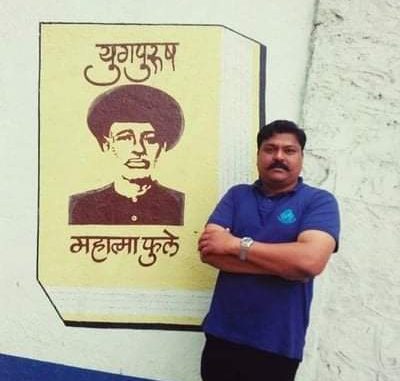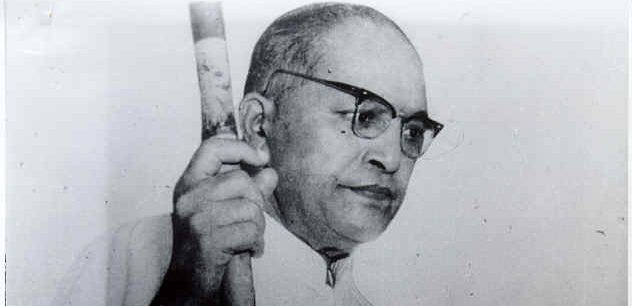
पवनकुमार शिंदे
सामाजिक परिवर्तनाच्या लढ्यास बळकटी मिळण्यासाठी कायदेमंडळात बनलेल्या ‘Law’ च्या सुरक्षा कवचाची आवश्यकता असते असे बाबासाहेबांनी स्पष्टपणे सांगितले होते.ब्रिटिशांच्या १५० वर्षांच्या अंमलात केवळ ६ सामाजिक परिवर्तनाचे कायदे बनले. त्यातही अस्पृश्यतेच्या व जाती व्यवस्थेने विरुद्ध अर्धमुर्धा देखील कायदा बनला नाही.
याचे कारण सांगताना बाबासाहेब लिहितात,
” Fear of breach of faith was one consideration. Fear of open rebellion was another. Fear of rebellion so far as the British Government in India was concerned was not a fear of the unknown. It was a fact of experience, There was one rebellion in 1801 which was known as the Vellore Mutiny. There was another rebellion in 1857. It was known as the Sepoy Mutiny. The Vellore Mutiny was a small flame. But the Sepoy Mutiny was a conflagration. In both cases the cause alleged was an interference with the religious practices of the Hindus. Two rebellions are enough to teach a lesson and the lesson of these two rebellions was not lost upon the British Government.
The Vellore Mutiny of 1801 had made the British Government cautious in the matter of social innovations. The Sepoy Mutiny of 1857 made hostile to any kind of social reform. The British did not want to take any risk and from their point of view the risk was very great The Mutiny made them so panicky that they felt that loss of India was the surest consequence of social reform and as they were anxious to keep India they refused to look at any project of Social Reform.”
संक्षिप्त विवेचन –
वेल्लोर आणि १८५७ च्या जातीय बंडामुळे ब्रिटिशांनी सामाजिक-धार्मिक बाबतीत परिवर्तनवादी कायदे करण्याचे बंद केले. कारण स्पष्ट होते, ते भारतावर परिवर्तन वगैरे करण्यासाठी नव्हे तर स्वतःचा स्वार्थ साधण्यासाठी राज्य करत होते.
म्हणून वरील दोन बंडामुळे ब्रिटिशांनी ‘Non intervention policy’ घोषित केली. राणीचा जाहीरनामा आणि १८५८ चा पहिला भारत सरकार अधिनियम. यात ब्रिटिशांनी त्रैवर्णीक शासक वर्गाला ४ आश्वासन दिले. ज्याचा फायदा घेऊन ब्राह्मणवाद्यांनी समग्र भारतात उच्छाद मांडला होता.
अस्पृश्यते विरुद्ध कायदा बनविण्याची आलेली संधी
बाबासाहेब लिहितात की भारतात कायदेमंडळ १८६१ ला स्थापन झाले. १९१६ आणि १९२८ असे केवळ दोनदाच अस्पृश्यतेचा प्रश्नावरील बिलावर संसदेत चर्चा झाली. व ती चर्चा पंडित मदन मोहन मालवीय याने(१९१६ ला) आणि पंडित वाजपेई याने (१९२८) हाणून पाडली. व अस्पृश्यते विरुद्ध कायदा होऊ दिला नाही. कारण सांगताना हे दोघे म्हणाले अस्पृश्यता हिंदूंची अंतर्गत बाब आहे, व १८५८ च्या कायद्यानुसार ब्रिटिश सरकार धर्मात ढवळाढवळ करू शकत नाही.
बाबासाहेब पुढे सांगतात की, ‘अस्पृश्यता आम्ही काही तयार केली नाही, अस्पृश्य व स्पृश्य हिंदूंनी आपापसात बघून घ्यावं’ असे सांगून ब्रिटिश सरकारने अस्पृश्यांच्या तोंडाला पाने पुसली.
ब्रिटिश सरकारचा झालेला एकमेव फायदा
या स्पृश्य हिंदू आणि ब्रिटिशांच्या टोलवाटोलवीच्या खेळात बहिष्कृत वर्गाला काय भेटलं ? हा प्रश्नाचे उत्तर बाबासाहेब देताना पुढे सांगतात की,
“What good has British conquest done to the Untouchables ? In education, nothing ; in service, nothing; in service, nothing.
There is one thing in which they have gained and that is equality in the eye of the law. There is of course nothing special in it because equality before law is common to all. There is
of course nothing tangible in it because those who hold office often prostitute their position and deny to the Untouchables the benefit of this rule. With all this, the principle of equality before law has been of special benefit to the Untouchables for the simple reason that they never had it before the days of the British. The Law of Manu did not recognize Law of Manu. It pervaded all walks of life, all social relationships and all departments of state. It had fouled the air and the Untouchables were simply smothered. The principle of equality before law has served as a great disinfectant. It has cleansed the air and the Untouchable is permitted to breath the air of freedom. This is a real gain to the Untouchables and having regard to the ancient past it is no small gain.”
संक्षिप्त विवेचन
कायद्यापुढे समानता एवढंच काय ते ब्रिटिश अंमलाखाली बहिष्कृत वर्गाला प्राप्त झालं. मनूच्या कायद्याने विषाक्त केलेल्या वातावरणावर याने एक प्रकारे जंतुनाशकाचे काम केले. आणि याचाच आधार घेऊन गोलमेज परिषदेत बाबासाहेबांनी ब्रिटिशांच्या ‘Non intervention policy ‘ ला जाहीर आव्हान दिले. हे आव्हान सूर्य कधीही न मावळणाऱ्या साम्राज्याच्या सम्राटा पुढे, हे आव्हान ७०० वर्ष राज्य केलेल्या अश्रफ मुघल वंशजांपुढे, हे आव्हान बलाढ्य त्रैवर्णीकांच्या प्रतिनिधींपुढे – गोरगरीब, पिडलेल्या, नाडलेल्या, कोणाचीही साथ नसलेल्या बहिष्कृत वर्गाच्या प्रज्ञासूर्याने दिले होते.
पवनकुमार शिंदे
लेखक ‘प्रज्ञासूर्याच्या प्रखर तेजाकडे – चला बाबासाहेबांच्या मूळ ग्रंथाकडे महाअभियान’, राष्ट्र हितकारिणी सभा, परभणी चे संकल्पक – प्रवर्तक आहेत.

Leave a Reply